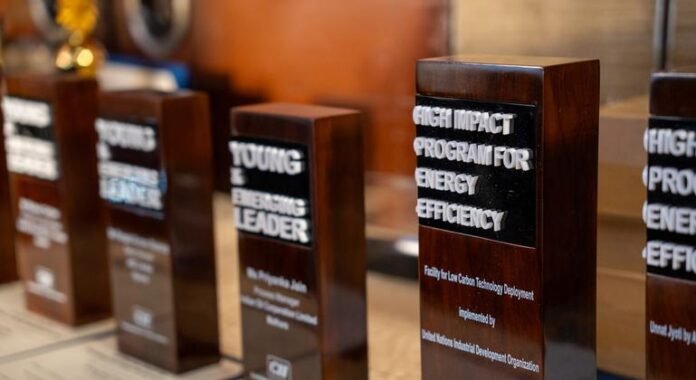These go-to-market industrial solutions are recognized under UNIDO’s Low Carbon Technology Deployment (FLCTD) facility, which is supported by the Global Environment Facility (GEF).
A low carbon project launched in 2016 in partnership with FLCTD, UNIDO, GEF and Bureau of Energy Efficiency (BEE), Government of India, accelerates innovation in energy efficiency.
The objective of this project is to identify and develop innovative technology solutions capable of saving energy and reducing greenhouse gas emissions.
During the Energy Efficiency Summit, UNIDO’s FLCTD project was awarded the “High Impact Program of Energy Efficiency” award for 2024 from CII for excellence in energy management.
Industry development officer Gershwin McCur said, “This summit, Unido“, a great opportunity to meet, interact and understand energy efficiency solutions for small businesses and large industries.”
“Through FLCTD, we showcased some examples of new companies and businesses that have now commercialized and brought their innovations to market. We showed the industry what innovation can do.”
Innovators are provided financial support through FLCTD to conduct field trials under various real-life scenarios as well as aspects of technology development and commercialization.
It helps reduce the risks associated with emerging climate technologies and accelerate their adoption.
FLCTD seeks to strengthen the transition to climate-focused technologies by working directly with knowledge-based institutions in addition to the identification and deployment, and validation and commercialization of specific high-potential low-carbon technology innovations.
Since FLCTD’s inception, six annual Innovation Challenges have been implemented, for which 88 winning innovations have been selected for scale-up and commercialization.
So far, Rs 30.6 crore (i.e. US$ 38 lakh) has been pledged for business support and technology validation to the project winners.
Winners were selected after screening over 210 industrial sites in India. So far, 43 technologies have been validated and 33 technologies have been commercialized.
Additionally, 67 small and innovative climate-technology companies and businesses, including 17 women-led businesses, received mentoring through the Low-Carbon Accelerator Program.

“Typically, industry is more interested in fully established technologies, but here we present exciting, innovative creative solutions for their energy efficiency,” said Gershwin McCur of Summit Results.
“Several small businesses reported that they were contacted by several industrialists after the conference and discussions are underway regarding potential contracts.”
In the next few years, UNIDO’s focus in India will be on ‘sustainable and carbon-free manufacturing’.
Under this, priority will be given to the identification, development and adoption of solutions (products, technologies or services) that keep the development of the manufacturing sector away from increased use of natural resources and environmental impacts.

